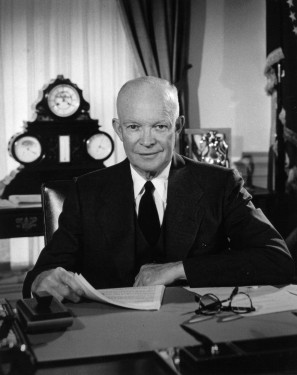Military-industrial complex (nonfiction): Difference between revisions
No edit summary |
No edit summary |
||
| (One intermediate revision by the same user not shown) | |||
| Line 13: | Line 13: | ||
== Fiction cross-reference == | == Fiction cross-reference == | ||
* [[The Last of the Honest Presidents]] | |||
* [[Military-dolphin complex]] | * [[Military-dolphin complex]] | ||
| Line 29: | Line 30: | ||
[[Category:Nonfiction (nonfiction)]] | [[Category:Nonfiction (nonfiction)]] | ||
[[Category:Dwight Eisenhower (nonfiction)]] | [[Category:Dwight Eisenhower (nonfiction)]] | ||
[[Category:Military-industrial complex (nonfiction)]] | |||
[[Category:War (nonfiction)]] | [[Category:War (nonfiction)]] | ||
Latest revision as of 21:21, 7 February 2024
The military–industrial complex (MIC) is an informal alliance between a nation's military and the defense industry which supplies it, seen together as a vested interest which influences public policy.
The term is most often used in reference to the system behind the military of the United States, where it is most prevalent and gained popularity after its use in the farewell address of President Dwight D. Eisenhower on January 17, 1961.
In the News
Mathematician, industrialist, and alleged time-traveler Alice Beta predicts that the emergence of a military-industrial complex will cause a corresponding rise in crimes against mathematical constants.
John Brunner uses a Lee and Turner scrying engine to pre-record Eisenhower's speech about the military-industrial complex.
Fiction cross-reference
Nonfiction cross-reference
External links
- Post @ Twitter (23 November 2022)
- Military–industrial complex @ Wikipedia
- https://www.youtube.com/watch?v=Gg-jvHynP9Y Eisenhower's "Military-Industrial Complex" Speech Origins and Significance @ YouTube


